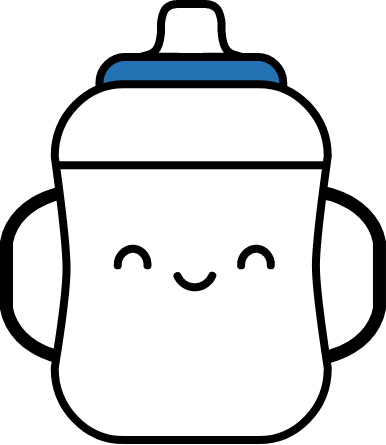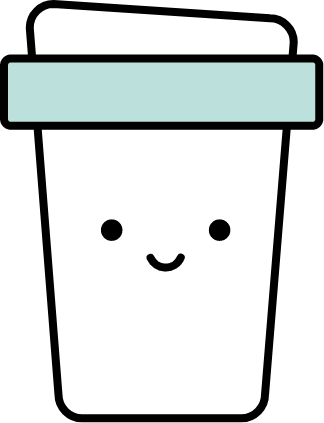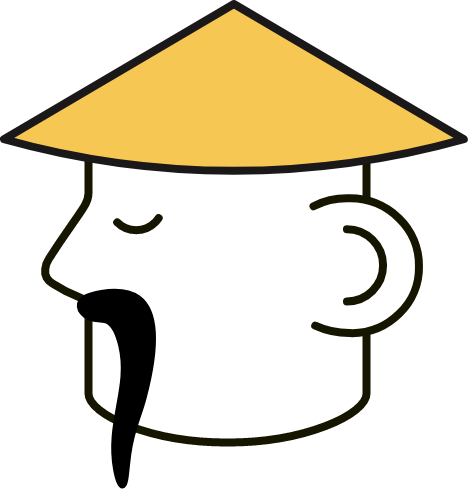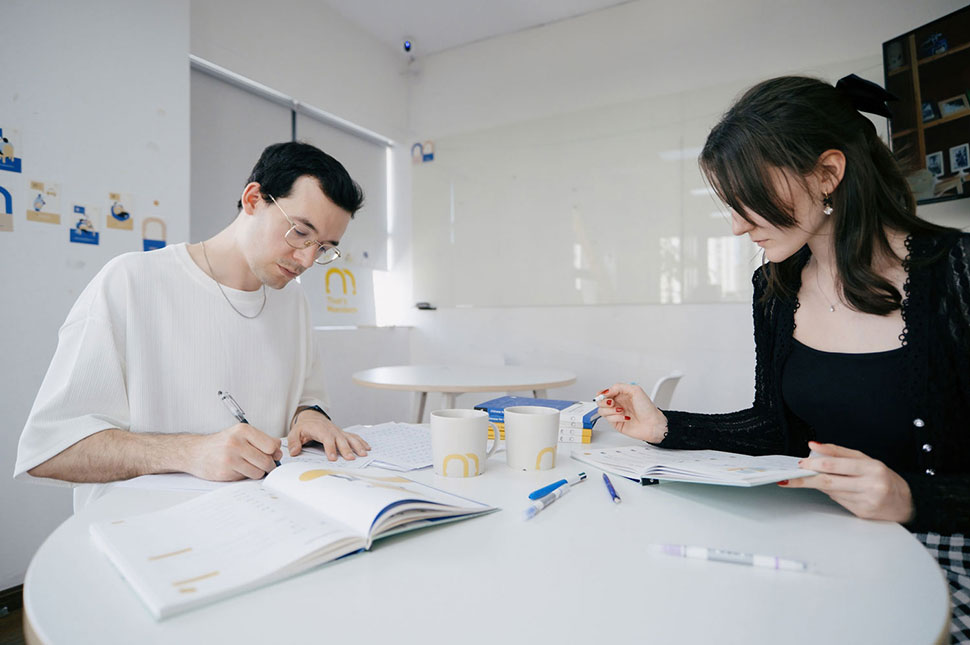HSK 1 Vocabulary & Tips
Thinking of preparing for the HSK 1 exam?
That’s great!
HSK1 is the first milestone in your Chinese learning, whether you’ve been learning with a teacher or on your own.
It’s the first assessment of your hard work.
There are many resources online that provide you with word lists and mock tests. But some of them are outdated, and others just don’t provide enough comments – so it’s not easy to navigate through a LOT of content.
Thus, we’ve tried to distill all the improtant things you need to know about HSK 1 on this page – and also provide you with a Vocabulary list with useful comments, so that you can prepare and pass the HSK1 with confidence.
1. WHAT LEVEL IS HSK 1?
The current HSK Test is divided into 6 levels, from HSK1 to HSK6. HSK’s levels are designed to fit into the six levels of the Common European Framework of Reference for Languages (CEFR).
HSK1 is considered to be a Beginner level.

Beginner
HSK 1
HSK 2

Intermediate
HSK 3
HSK 4

Advanced
HSK 5
HSK 6
2. WHAT'S THE STRUCTURE OF HSK 1 TEST?
HSK1 only contains Listening and Reading sections.
The test consists of 20 Listening (true-or-false & multiple-choice) and 20 Reading (multiple-choice) questions.
In HSK1, all characters are provided with Pinyin.
What's the Passing Score?
The maximum score you can get at HSK 1 is 200 points. But to pass the test successfully, you will need to get at least 120 points.
3. How long will it take me to pass HSK 1?
There are many factors to be considered, for example, what courses do you take, how often do you get to practice with your Chinese friends, etc.

After 3-5 months
After 3 to 5 months of systematic study you should be able to pass beginner’s level (HSK1), where you are supposed to be able to conduct simple daily conversations, understand frequently used expressions related to daily topics, and use simple Chinese sentences to express your own opinions or thoughts.
4. HSK 1 Vocabulary by topic
We’ve split the 150 words from HSK1 word list into 16 topics – simply because our brains aren’t wired to learn words from A to Z!
Instead, we encourage you to learn the new words in categories and try to create your own stories around them.
You can practice by putting all the words from 1 list into 1 short story (or even 1 long sentence!).
PART 1: BASICS
Words on this list are perhaps the most commonly used words in Chinese.
They are the basic building blocks you simply cannot live without.
|
1 |
我 |
wǒ |
I |
(pronoun) |
|
2 |
我们 |
wǒmen |
we |
(pronoun) |
|
3 |
你 |
nǐ |
you |
(pronoun) |
|
4 |
他 |
tā |
he |
(pronoun) |
|
5 |
她 |
tā |
she |
(pronoun) |
|
6 |
的 |
de |
(possessive particle) |
(particle) |
|
7 |
好 |
hǎo |
good |
(adj) |
|
8 |
这 |
zhè |
this |
(pronoun) |
|
9 |
那 |
nà |
that |
(pronoun) |
|
10 |
是 |
shì |
to be (am; is; are) |
(verb) |
|
11 |
不 |
bù |
no; not |
(adv) |
|
12 |
有 |
yǒu |
to have |
(verb) |
|
13 |
没有 |
méiyǒu |
not to have |
(verb) |
|
14 |
人 |
rén |
person; people |
(noun) |
|
15 |
东西 |
dōngxi |
thing(s) |
(noun) |
Extra words & phrases you can build:
- 你们 (nǐmen) – you (plural form)
- 他们 (tāmen) – they (all-male, or of mixed gender)
- 她们 (tāmen) – they (all-female)
- 我的 (wǒ de) – my
- 你的 (nǐ de) – your
- 他的 (tā de) – his
- 她的 (tā de) – her
- 他们的 (tāmen de) – their
- 你好 (nǐ hǎo) – Hello
- 好的 (hǎo de) – All right; fine
- 不是 (bù shì) – not to be (am not; aren’t; isn’t)
- 好人 (hǎorén) – a good person
- 这是…… (zhè shì) – This is…
- 那是…… (nà shì) – That is…
- 这是我们的东西。 (Zhè shì wǒmen de dongxi.) – These are our things.
PART 2: PHRASES
|
1 |
我 |
wǒ |
I |
(pronoun) |
|
2 |
我们 |
wǒmen |
we |
(pronoun) |
|
3 |
你 |
nǐ |
you |
(pronoun) |
|
4 |
他 |
tā |
he |
(pronoun) |
|
5 |
她 |
tā |
she |
(pronoun) |
|
6 |
的 |
de |
(possessive particle) |
(particle) |
|
7 |
好 |
hǎo |
good |
(adj) |
|
8 |
这 |
zhè |
this |
(pronoun) |
|
9 |
那 |
nà |
that |
(pronoun) |
|
10 |
是 |
shì |
to be (am; is; are) |
(verb) |
|
11 |
不 |
bù |
no; not |
(adv) |
|
12 |
有 |
yǒu |
to have |
(verb) |
|
13 |
没有 |
méiyǒu |
not to have |
(verb) |
|
14 |
人 |
rén |
person; people |
(noun) |
|
15 |
东西 |
dōngxi |
thing(s) |
(noun) |
PART 3: NUMBERS
|
31 |
一 | yī |
1 |
(numeral) |
|
32 |
二 | èr |
2 |
(numeral) |
|
33 |
三 | sān |
3 |
(numeral) |
|
34 |
四 | sì |
4 |
(numeral) |
|
35 |
五 | wǔ |
5 |
(numeral) |
|
36 |
六 | liù |
6 |
(numeral) |
|
37 |
七 | qī |
7 |
(numeral) |
|
38 |
八 | bā |
8 |
(numeral) |
|
39 |
九 | jiǔ |
9 |
(numeral) |
|
40 |
十 | shí |
10 |
(numeral) |
|
41 |
几 | jǐ |
a few |
(question word) |
|
42 |
个 | gè |
general measure word (for people, objects etc.) |
(measure word) |
|
43 |
些 | xiē |
some; a few |
(measure word) |
|
44 |
块 | kuài |
Chinese yuan (colloquial) |
(measure word) |
|
45 |
多 | duō |
many; much |
(adj) |
|
46 |
少 | shǎo |
little; less; few |
(adj; adv) |
PART 4: FOOD & DRINKS
|
47 |
吃 |
chī |
to eat |
(verb) |
|
48 |
菜 |
cài |
dish |
(noun) |
|
49 |
米饭 |
mǐfàn |
(cooked) rice |
(noun) |
|
50 |
水果 |
shuǐguǒ |
fruit |
(noun) |
|
51 |
苹果 |
píngguǒ |
apple(s) |
(noun) |
|
52 |
饭店 |
fàndiàn |
restaurant* |
(noun) |
|
53 |
喝 |
hē |
to drink |
(verb) |
|
54 |
热 |
rè |
hot |
(adj) |
|
55 |
茶 |
chá |
tea |
(noun) |
|
56 |
冷 |
lěng |
cold |
(adj) |
|
57 |
水 |
shuǐ |
water |
(noun) |
|
58 |
大 |
dà |
big; xx-large |
(adj) |
|
59 |
小 |
xiǎo |
small |
(adj) |
|
60 |
杯子 |
bēizi |
cup |
(noun) |
PART 6: FAMILY & FRIENDS
|
61 |
家 |
jiā |
family |
(noun) |
|
62 |
爸爸 |
bàba |
dad; (informal) father |
(noun) |
|
63 |
妈妈 |
māma |
mom; (informal) mother |
(noun) |
|
64 |
儿子 |
érzi |
son |
(noun) |
|
65 |
女儿 |
nǚ’ér |
daughter |
(noun) |
|
66 |
叫 |
jiào |
to call; to be called |
(verb) |
|
67 |
名字 |
míngzi |
name |
(noun) |
|
68 |
岁 |
suì |
year (of age) |
(noun) |
|
69 |
朋友 |
péngyou |
friend |
(noun) |
|
70 |
狗 |
gǒu |
dog |
(noun) |
|
71 |
猫 |
māo |
cat |
(noun) |
|
72 |
漂亮 |
piàoliang |
pretty; beautiful |
(adj) |
|
73 |
医生 |
yīshēng |
doctor |
(noun) |
PART 7: BASIC VERBS
|
74 |
喜欢 |
xǐhuan |
to like |
(verb) |
|
75 |
做 |
zuò |
to do |
(verb) |
|
76 |
去 |
qù |
to go |
(verb) |
|
77 |
来 |
lái |
to come |
(verb) |
|
78 |
想 |
xiǎng |
to want; to consider |
(verb) |
|
79 |
看 |
kàn |
to see; to look |
(verb) |
|
80 |
看见 |
kànjiàn |
to see; to catch sight of |
(verb) |
|
81 |
工作 |
gōngzuò |
to work; job |
(verb; noun) |
PART 8: QUESTIONS
|
82 |
吗 |
ma |
? |
(particle) |
|
83 |
呢 |
ne |
And … ? How about … ? |
(particle) |
|
84 |
什么 |
shénme |
what |
(question word) |
|
85 |
谁 |
shéi |
who |
(question word) |
|
86 |
怎么 |
zěnme |
how |
(question word) |
|
87 |
怎么样 |
zěnmeyàng |
How is … ? How about … ? |
(question word) |
|
88 |
哪 |
nǎ |
which |
(question word) |
|
89 |
哪儿 |
nǎr |
where |
(question word) |
PART 9: GRAMMAR
|
93 |
和 |
hé |
and; with |
(conjunction) |
|
92 |
都 |
dōu |
all |
(adverb) |
|
96 |
了 |
le |
(particle of completed action/change of state) |
(particle) |
|
94 |
会 |
huì |
to be able to; to know how to |
(auxiliary verb) |
|
95 |
能 |
néng |
can; to be able to |
(auxiliary verb) |
|
91 |
太 |
tài |
extremely; too (much) |
(adverb) |
|
90 |
一点儿 |
yīdiǎnr |
a little; a bit more… |
(numeral+measure word, used after verbs) |
PART 10: LOCATIONS
|
97 |
在 |
zài |
to be in |
(preposition; verb) |
|
98 |
里 |
lǐ |
in; inside |
(direction noun) |
|
99 |
上 |
shàng |
on; up; above (short form of 上面 shàngmian) |
(direction noun) |
|
100 |
下 |
xià |
below; down; under (short form of 下面) |
(direction noun) |
|
101 |
前面 |
qiánmian |
front; in front |
(noun) |
|
102 |
后面 |
hòumian |
behind |
(noun) |
PART 11: PLACES
|
103 |
中国 |
Zhōngguó |
China |
(country name) |
|
104 |
北京 |
Běijīng |
Beijing |
(city name) |
|
105 |
商店 |
shāngdiàn |
store |
(noun) |
|
106 |
医院 |
yīyuàn |
hospital |
(noun) |
|
107 |
出租车 |
chūzūchē |
taxi |
(noun) |
|
108 |
飞机 |
fēijī |
airplane |
(noun) |
PART 12: TIME
|
109 |
现在 |
xiànzài |
now |
(time noun) |
|
110 |
今天 |
jīntiān |
today |
(time noun) |
|
111 |
昨天 |
zuótiān |
yesterday |
(time noun) |
|
112 |
明天 |
míngtiān |
tomorrow |
(time noun) |
|
113 |
年 |
nián |
year |
(time noun) |
|
114 |
月 |
yuè |
month |
(time noun) |
|
115 |
星期 |
xīngqī |
week |
(time noun) |
|
116 |
号 |
hào |
date; day (of a month) |
(time noun) |
|
117 |
点 |
diǎn |
o’clock |
(time noun) |
|
118 |
分钟 |
fēnzhōng |
minute (of time) |
(time noun) |
|
119 |
上午 |
shàngwǔ |
in the morning |
(time noun) |
|
120 |
中午 |
zhōngwǔ |
noon; at noon |
(time noun) |
|
121 |
下午 |
xiàwǔ |
in the afternoon |
(time noun) |
|
122 |
时候 |
shíhou |
time (a point in time; moment) |
(time noun) |
PART 13: OBJECTS
|
123 |
衣服 |
yīfu |
clothes |
(noun) |
|
124 |
桌子 |
zhuōzi |
table |
(noun) |
|
125 |
椅子 |
yǐzi |
chair |
(noun) |
|
126 |
电脑 |
diànnǎo |
computer |
(noun) |
|
127 |
电视 |
diànshì |
TV set |
(noun) |
|
128 |
电影 |
diànyǐng |
movie |
(noun) |
PART 14: VERBS
|
129 |
爱 |
ài |
to love; love |
(verb; noun) |
|
130 |
买 |
mǎi |
to buy |
(verb) |
|
131 |
住 |
zhù |
to live; to reside; to stay |
(verb) |
|
132 |
回 |
huí |
to return |
(verb) |
|
133 |
开 |
kāi |
to open |
(verb) |
|
134 |
睡觉 |
shuìjiào |
to sleep; go to bed |
(verb phrase) |
|
135 |
打电话 |
dǎ diànhuà |
to call (on the phone) |
(verb phrase) |
PART 15: WEATHER
|
136 |
天气 |
tiānqì |
weather |
(noun) |
|
137 |
下雨 |
xiàyǔ |
to rain |
(verb phrase) |
PART 16: CHINESE LEARNING
|
138 |
学习 |
xuéxí |
to learn |
(verb) |
|
139 |
汉语 |
Hànyǔ |
Chinese (language) |
(noun) |
|
140 |
学生 |
xuéshēng |
student |
(noun) |
|
141 |
老师 |
lǎoshī |
teacher |
(noun) |
|
142 |
听 |
tīng |
to listen |
(verb) |
|
143 |
说 |
shuō |
to say; to speak |
(verb) |
|
144 |
读 |
dú |
to read (aloud) |
(verb) |
|
145 |
写 |
xiě |
to write |
(verb) |
|
146 |
书 |
shū |
book |
(noun) |
|
147 |
本 |
běn |
(m.w. for books) |
(measure word) |
|
148 |
字 |
zì |
character; word |
(noun) |
|
149 |
同学 |
tóngxué |
classmate(s) |
(noun) |
|
150 |
学校 |
xuéxiào |
school |
(noun) |
HSK 1 Vocabulary by topic
We’ve split the 150 words from HSK1 word list into 16 topics – simply because our brains aren’t wired to learn words from A to Z!
Instead, we encourage you to learn the new words in categories and try to create your own stories around them.
You can practice by putting all the words from 1 list into 1 short story (or even 1 long sentence!).
PART 1: BASICS
Words on this list are perhaps the most commonly used words in Chinese.
They are the basic building blocks you simply cannot live without.
| 我 |
wǒ |
I |
| 我们 |
wǒmen |
we |
| 你 |
nǐ |
you |
| 他 |
tā |
he |
| 她 |
tā |
she |
| 的 |
de |
(possessive particle) |
| 好 |
hǎo |
good |
| 这 |
zhè |
this |
| 那 |
nà |
that |
| 是 |
shì |
to be (am; is; are) |
| 不 |
bù |
no; not |
| 有 |
yǒu |
to have |
| 没有 |
méiyǒu |
not to have |
| 人 |
rén |
person; people |
| 东西 |
dōngxi |
thing(s) |
Extra words & phrases you can build:
- 你们 (nǐmen) – you (plural form)
- 他们 (tāmen) – they (all-male, or of mixed gender)
- 她们 (tāmen) – they (all-female)
- 我的 (wǒ de) – my
- 你的 (nǐ de) – your
- 他的 (tā de) – his
- 她的 (tā de) – her
- 他们的 (tāmen de) – their
- 你好 (nǐ hǎo) – Hello
- 好的 (hǎo de) – All right; fine
- 不是 (bù shì) – not to be (am not; aren’t; isn’t)
- 好人 (hǎorén) – a good person
- 这是…… (zhè shì) – This is…
- 那是…… (nà shì) – That is…
- 这是我们的东西。 (Zhè shì wǒmen de dongxi.) – These are our things.
PART 2: PHRASES
| 谢谢 |
xièxie |
Thank you |
| 不客气 |
bù kèqi |
You’re welcome |
| 对不起 |
duìbuqǐ |
Sorry; I’m so sorry |
| 没关系 |
méiguānxi |
It’s al right; no problem |
| 再见 |
zàijiàn |
Goodbye |
| 很 |
hěn |
very |
| 高兴 |
gāoxìng |
happy |
| 认识 |
rènshì |
to know; to recognize |
| 多少 |
duōshao |
how much; how many |
| 钱 |
qián |
money |
| 先生 |
xiānsheng |
Mister; Sir |
| 小姐 |
xiǎojiě |
Miss; young lady |
| 请 |
qǐng |
please; to ask |
| 坐 |
zuò |
to sit |
| 喂 |
wéi |
Hello? (when answering the phone) |
PART 3: NUMBERS
|
一 |
yī |
1 |
|
二 |
èr |
2 |
|
三 |
sān |
3 |
|
四 |
sì |
4 |
|
五 |
wǔ |
5 |
|
六 |
liù |
6 |
|
七 |
qī |
7 |
|
八 |
bā |
8 |
|
九 |
jiǔ |
9 |
|
十 |
shí |
10 |
|
几 |
jǐ |
a few |
|
个 |
gè |
general measure word (for people, objects etc.) |
|
些 |
xiē |
some; a few |
|
块 |
kuài |
Chinese yuan (colloquial) |
|
多 |
duō |
many; much |
|
少 |
shǎo |
little; less; few |
PART 4: FOOD & DRINKS
| 吃 |
chī |
to eat |
| 菜 |
cài |
dish |
| 米饭 |
mǐfàn |
(cooked) rice |
| 水果 |
shuǐguǒ |
fruit |
| 苹果 |
píngguǒ |
apple(s) |
| 饭店 |
fàndiàn |
restaurant* |
| 喝 |
hē |
to drink |
| 热 |
rè |
hot |
| 茶 |
chá |
tea |
| 冷 |
lěng |
cold |
| 水 |
shuǐ |
water |
| 大 |
dà |
big; large |
| 小 |
xiǎo |
small |
| 杯子 |
bēizi |
cup |
PART 6: FAMILY & FRIENDS
| 家 |
jiā |
family |
| 爸爸 |
bàba |
dad; (informal) father |
| 妈妈 |
māmā |
mom; (informal) mother |
| 儿子 |
érzi |
son |
| 女儿 |
nǚ’ér |
daughter |
| 叫 |
jiào |
to call; to be called |
| 名字 |
míngzi |
name |
| 岁 |
suì |
year (of age) |
| 朋友 |
péngyou |
friend |
| 狗 |
gǒu |
dog |
| 猫 |
māo |
cat |
| 漂亮 |
piàoliang |
pretty; beautiful |
| 医生 |
yīshēng |
doctor |
PART 7: BASIC VERBS
| 喜欢 |
xǐhuan |
to like |
| 做 |
zuò |
to do |
| 去 |
qù |
to go |
| 来 |
lái |
to come |
| 想 |
xiǎng |
to want; to consider |
| 看 |
kàn |
to see; to look |
| 看见 |
kànjiàn |
to see; to catch sight of |
| 工作 |
gōngzuò |
to work; job |
PART 8: QUESTIONS
| 吗 |
ma |
? |
| 呢 |
ne |
And … ? How about … ? |
| 什么 |
shénme |
what |
| 谁 |
shéi |
who |
| 怎么 |
zěnme |
how |
| 怎么样 |
zěnmeyàng |
How is … ? How about … ? |
| 哪 |
nǎ |
which |
| 哪儿 |
nǎr |
where |
PART 9: GRAMMAR
| 和 |
hé |
and; with |
| 都 |
dōu |
all |
| 了 |
le |
(particle of completed action/change of state) |
| 会 |
huì |
to be able to; to know how to |
| 能 |
néng |
can; to be able to |
| 太 |
tài |
extremely; too (much) |
| 一点儿 |
yīdiǎnr |
a little; a bit more… |
PART 10: LOCATIONS
|
在 |
zài |
to be in |
|
里 |
lǐ |
in; inside |
|
上 |
shàng |
on; up; above |
|
下 |
xià |
below; down; under |
|
前面 |
qiánmian |
front; in front |
|
后面 |
hòumian |
behind |
PART 11: PLACES
|
中国 |
Zhōngguó |
China |
|
北京 |
Běijīng |
Beijing |
|
商店 |
shāngdiàn |
store |
|
医院 |
yīyuàn |
hospital |
|
出租车 |
chūzūchē |
taxi |
|
飞机 |
fēijī |
airplane |
PART 12: TIME
| 现在 |
xiànzài |
now |
| 今天 |
jīntiān |
today |
| 昨天 |
zuótiān |
yesterday |
| 明天 |
míngtiān |
tomorrow |
| 年 |
nián |
year |
| 月 |
yuè |
month |
| 星期 |
xīngqī |
week |
| 号 |
hào |
date; day (of a month) |
| 点 |
diǎn |
o’clock |
| 分钟 |
fēnzhōng |
minute (of time) |
| 上午 |
shàngwǔ |
in the morning |
| 中午 |
zhōngwǔ |
noon; at noon |
| 下午 |
xiàwǔ |
in the afternoon |
| 时候 |
shíhou |
time (a point in time; moment) |
PART 13: OBJECTS
|
衣服 |
yīfu |
clothes |
|
桌子 |
zhuōzi |
table |
|
椅子 |
yǐzi |
chair |
|
电脑 |
diànnǎo |
computer |
|
电视 |
diànshì |
TV set |
|
电影 |
diànyǐng |
movie |
PART 14: VERBS
| 爱 |
ài |
to love; love |
| 买 |
mǎi |
to buy |
| 住 |
zhù |
to live; to reside; to stay |
| 回 |
huí |
to return |
| 开 |
kāi |
to open |
| 睡觉 |
shuìjiào |
to sleep; go to bed |
| 打电话 |
dǎ diànhuà |
to call (on the phone) |
PART 15: WEATHER
| 天气 |
tiānqì |
weather |
| 下雨 |
xiàyǔ |
to rain |
PART 16: CHINESE LEARNING
|
学习 |
xuéxí |
to learn |
|
汉语 |
Hànyǔ |
Chinese (language) |
|
学生 |
xuéshēng |
student |
|
老师 |
lǎoshī |
teacher |
|
听 |
tīng |
to listen |
|
说 |
shuō |
to say; to speak |
|
读 |
dú |
to read (aloud) |
|
写 |
xiě |
to write |
|
书 |
shū |
book |
|
本 |
běn |
(m.w. for books) |
|
字 |
zì |
character; word |
|
同学 |
tóngxué |
classmate(s) |
|
学校 |
xuéxiào |
school |




